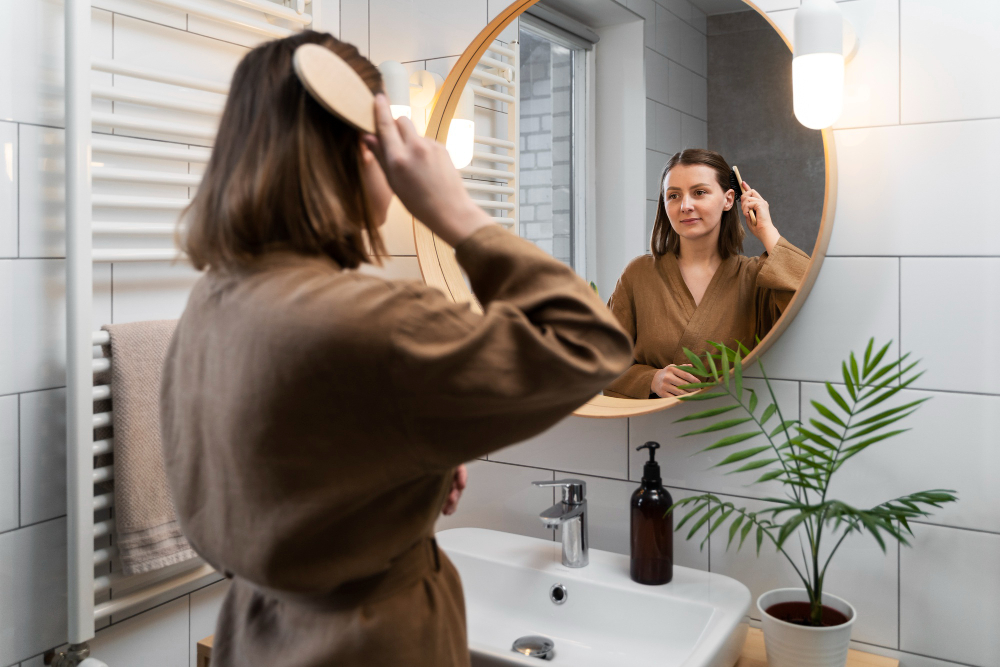There’s something magical about mornings. A consistent morning routine holds the power to either set us up for success—or drag us into a whirlwind of stress and overwhelm. You might not consider yourself a “morning person,” but the truth is: how you start your day plays a big role in how the rest of it unfolds.
Creating a morning routine isn’t about perfection or squeezing more into your schedule. It’s about carving out time—just for you—to feel grounded, calm, and in control before the world comes knocking. And the best part? It doesn’t have to be complicated.
Let’s talk about what a morning routine really is, why it matters more than you think, and how to make one that works for you—even if your mornings are normally rushed, chaotic, or downright non-existent.
What Is a Morning Routine, Really?
When people hear the term “morning routine,” they often picture an ultra-disciplined influencer doing yoga at sunrise, drinking green juice, journaling in a leather notebook, and meditating before 7 a.m. That’s nice… but also not realistic for most of us.
At its core, a morning routine is simply a series of intentional actions you take after waking up. It’s the opposite of letting the day “just happen to you.” Instead of grabbing your phone, scrolling aimlessly, or reacting to emails before you even brush your teeth, a morning routine lets you decide how your day begins.
That doesn’t mean your mornings need to be rigid or packed with productivity hacks. The best routines are simple, meaningful, and easy to repeat.
Why a Morning Routine Can Truly Make a Difference
It might seem like a small detail—those first 30 to 60 minutes after waking up—but they have a ripple effect that touches everything. Your mood, your energy, your focus and even your relationships.

When you start the day in a calm, clear state of mind, you’re better equipped to handle what life throws at you. Decisions become easier. Conversations feel smoother. You’re not operating from a place of chaos or anxiety—you’re responding with intention.
Your brain also loves routine. When you follow the same morning pattern, you give your mind a sense of predictability. That alone helps lower stress, reduce decision fatigue, and create a steady rhythm that carries into your afternoon and evening.
And if staying focused and organized is something you struggle with later in the day, you might find that a strong morning foundation helps more than you’d expect. In fact, starting your day with clarity can go hand-in-hand with using the right tools—like Best Productivity Apps that help you work smarter, not harder.
You Don’t Need to Wake Up at 5 A.M.
Let’s get this out of the way: waking up at the crack of dawn is not a requirement. What matters more than the time on the clock is how you use those first moments of the day.
Some people feel energized waking up early. Others function best with a bit more sleep. And that’s okay. Your morning routine should be designed around your natural rhythm—not someone else’s.
Maybe your routine begins at 6:00 a.m., or maybe it starts at 9:00. What matters is that you show up for yourself, consistently, with kindness and intention.
Choosing the Right Elements for Your Morning
A good routine doesn’t need to include five different wellness practices or an elaborate skincare routine. It should contain what makes you feel awake, aligned, and steady.
Some people enjoy quiet time with a cup of tea. Others might feel best after a quick shower and a few deep breaths near an open window. You might like a short walk, a bit of journaling, or simply listening to music while getting ready.
The magic isn’t in the action itself—it’s in the fact that you’re doing it on purpose, instead of reacting to whatever’s on your screen or to-do list.
The more present you are in those first few minutes of the day, the more likely you are to stay present as the day unfolds.
The Mind-Body Connection in the Morning
Science shows us that how we start our day impacts our hormone levels, attention span, and even long-term health. Cortisol, known as the “stress hormone,” naturally spikes in the morning to help us wake up—but high cortisol levels combined with screen time and no movement can leave us feeling jittery and drained.

A mindful morning routine helps balance that spike. Activities like stretching, breathing deeply, stepping outside, or even sitting quietly with your thoughts can reduce cortisol and increase dopamine—the “feel-good” hormone that supports motivation and mental clarity.
If you usually wake up and check your phone right away, you’re not alone—but those first few minutes matter more than we think. Taking a break from screens in the morning—even just for a little while—can do wonders for your focus and mood. If you’re curious about how stepping away from tech can help reset your mind, take a look at our guide on Digital Detox and why unplugging makes such a difference.
You don’t need fancy tools or expensive gear. You just need a few minutes to let your body and mind wake up slowly and naturally.
Making It a Habit Without the Pressure
Creating a morning routine doesn’t mean you have to do it perfectly every single day. Life gets busy. Alarms get ignored. Kids need things. Work calls early.
That’s why flexibility is key. A routine doesn’t mean you follow the exact same steps in the same order, seven days a week. It means you show up for yourself, even in small ways. It could be 30 minutes one day and five minutes the next. Both count.
Start by asking yourself: what would make me feel better in the morning? What’s something small I can do that feels like a gift to myself?
Once you’ve answered that, do it. That’s your routine. It’s yours to define, and yours to evolve over time.

Morning Routines and Self-Respect
When you give yourself a few moments of care and attention in the morning, you’re telling yourself: “I matter. My needs matter. My time matters.”
And over time, that message sticks. It starts to influence how you show up at work, how you speak to yourself, how you treat others, and how you respond to challenges. It’s not just a routine—it’s a relationship with yourself. One that says, I’ve got me.
And when you begin your day from that place of self-respect, the rest of the day tends to follow.
Your Morning Routine, Your Rules
There’s no one-size-fits-all formula. And honestly? That’s the best part.
Some people love routines that include meditation, goal-setting, and exercise. Others thrive with just a few quiet moments and a hot drink. Some like to speak affirmations in the mirror, others prefer to sit in silence.
What matters most is that your routine feels good to you. If it doesn’t, it won’t last. And if it does—even just a little—it can change your life.
Let’s Talk About Your Mornings
Now that you’ve read this far, I’d love to hear from you. Do you have a morning routine that works for you? Or are you just getting started? What’s one thing you’d like to try tomorrow morning to set a better tone for your day?

Drop a comment below and share your thoughts—your experience might be exactly what someone else needs to read today.
Sources
INTEGRIS Health – “Morning Routines for Stress Relief”
This article highlights how a morning routine that includes activities like breakfast and practices such as yoga or stretching can improve metabolism and mental state, providing energy and reducing stress.
https://integrishealth.org/resources/on-your-health/2022/september/morning-routines-for-stress-relief
Beyond Healing Counseling – “Morning Routines for Mental Health”
This resource explores how a structured and mindful morning routine can regulate stress, improve mood, and increase focus, setting a positive tone for the day.
https://beyondhealingcounseling.com/morning-routines-for-mental-health/
NDTV – “These Morning Routine Habits Can Help Boost Your Mental Health”
This article discusses how morning habits like hydration, practicing gratitude, and daily planning can improve mental health, reduce stress, and increase productivity.
https://doctor.ndtv.com/living-healthy/these-morning-routine-habits-can-help-boost-your-mental-health-5980815




